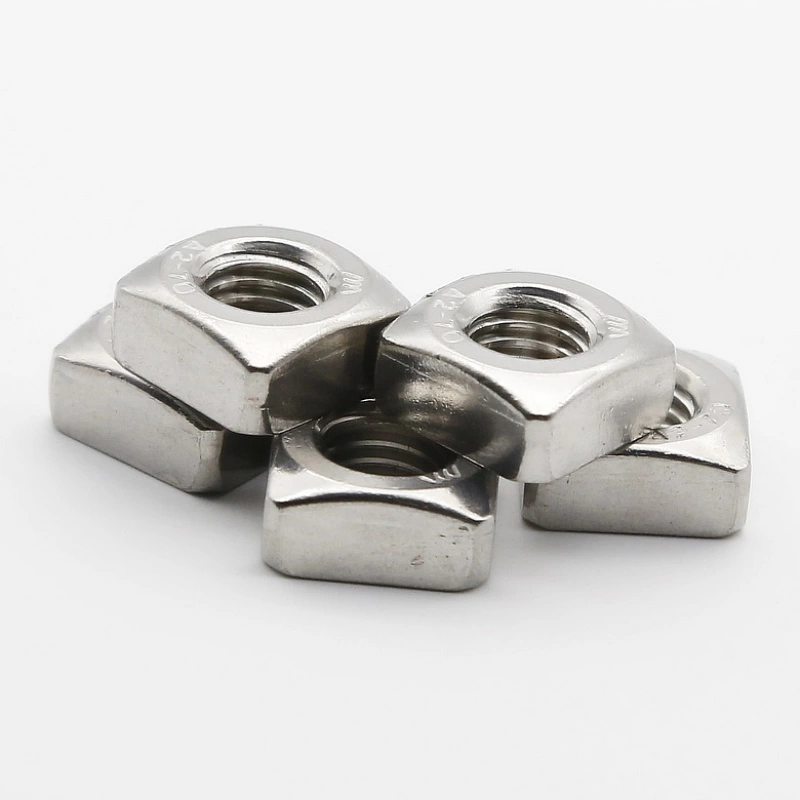

Understanding M16 Stud Bolts and Their Applications in Engineering Projects
Nov . 16, 2024 03:29 Back to list
Understanding M16 Stud Bolts and Their Applications in Engineering Projects
Understanding M16 Stud Bolts A Comprehensive Guide
M16 stud bolts are an essential component in various engineering and construction projects, known for their strength, reliability, and versatility. These bolts, with a nominal diameter of 16 millimeters, play a critical role in securing structural elements in place, ensuring stability and safety in a wide range of applications. In this article, we will explore the features, applications, and benefits of M16 stud bolts.
What are M16 Stud Bolts?
Stud bolts are threaded rods that are designed for high-stress applications. They are usually made of high-strength materials like steel or alloy steel and are typically used in conjunction with nuts and washers. M16 stud bolts have a property class that defines their mechanical properties, such as tensile strength and yield strength, which are crucial for determining their suitability for specific applications.
The “M” in M16 indicates that it is a metric bolt, with a nominal diameter of 16 mm. Stud bolts can have various lengths, and their threading is typically consistent throughout the rod’s length, allowing them to be inserted into a variety of components while enabling flexible assembly options.
Applications of M16 Stud Bolts
M16 stud bolts are commonly found in numerous sectors, including
1. Construction and Civil Engineering These bolts are used to secure structural steel connections, anchoring heavy machinery, and reinforcing concrete elements. Their high tensile characteristics make them ideal for bearing loads in large structures.
2. Oil and Gas Industry In this sector, M16 stud bolts are critical for securing flanges in pipelines and pressure vessels. Their ability to withstand harsh conditions and high pressure makes them indispensable in drilling rigs and refineries.
m16 stud bolt

3. Manufacturing Stud bolts provide strong fastening solutions in equipment and machinery assembly, enhancing the durability of the products manufactured.
4. Automotive and Aerospace M16 stud bolts are utilized in the assembly of vehicles and aircraft where reliability and safety are paramount, ensuring that components remain securely fastened under various operational conditions.
Benefits of Using M16 Stud Bolts
1. High Load Capacity M16 stud bolts are designed to handle significant loads, making them suitable for critical applications where security and stability are paramount.
2. Versatility Their standard size and threading allow for interchangeability with various nuts and washers, providing flexibility in assembly processes.
3. Corrosion Resistance Many M16 stud bolts are available with coatings or finishes that protect against corrosion, extending their lifespan in outdoor and harsh environments.
4. Cost-Effectiveness When considering their strength and durability, M16 stud bolts offer a cost-effective solution for securing structures over time, requiring less frequent replacements.
Conclusion
In summary, M16 stud bolts are vital components in many industries, prized for their strength, versatility, and reliability. Understanding their specifications and applications is crucial for engineers and contractors who aim to ensure the safety and integrity of their structures. Whether used in construction, oil and gas, manufacturing, or automotive sectors, M16 stud bolts continue to play a critical role in modern engineering practices. As industries evolve and new materials and techniques emerge, M16 stud bolts will likely remain a staple in fastening technology for years to come.
Latest news
-
Hot Dip Galvanized Bolts-About LongZe|High Strength, Corrosion Resistance
NewsJul.30,2025
-
High-Strength Hot Dip Galvanized Bolts - Hebei Longze | Corrosion Resistance, Customization
NewsJul.30,2025
-
Hot Dip Galvanized Bolts-Hebei Longze|Corrosion Resistance&High Strength
NewsJul.30,2025
-
High-Strength Hot-Dip Galvanized Bolts-Hebei Longze|Corrosion Resistance&High Strength
NewsJul.30,2025
-
Hot Dip Galvanized Bolts-Hebei Longze|Corrosion Resistance&High Strength
NewsJul.30,2025
-
Hot Dip Galvanized Bolts - Hebei Longze | Corrosion Resistance, High Strength
NewsJul.30,2025

